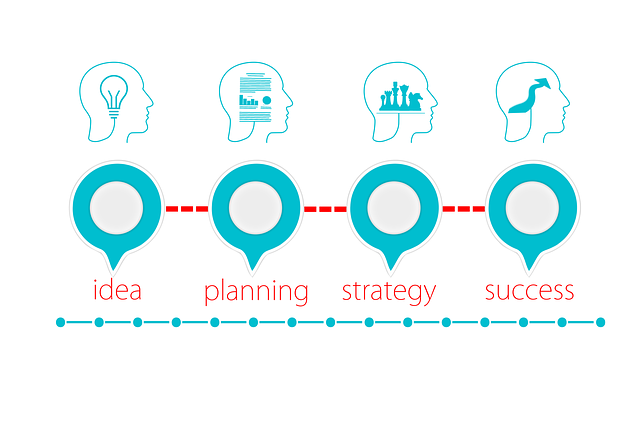May 11, 2025 – Business partnerships can unlock growth opportunities, but effective Tax Planning for Partnerships is essential to minimize liabilities and maximize profitability. Since partnerships operate under pass-through taxation, planning tax strategies correctly ensures compliance with the IRS while optimizing financial outcomes.

What is Tax Planning for Partnerships?
Tax Planning for Partnerships involves legal strategies to reduce taxable income and optimize deductions. Unlike corporations, partnerships don’t pay income taxes at the entity level. Instead, profits and losses pass through to individual partners, impacting personal tax obligations. Strategic tax planning ensures financial efficiency and compliance.
Related Reading:
- Tax Planning and Management – A deep dive into managing taxes for better financial outcomes.
- How to Save 100% Tax – Key tax-saving techniques businesses should implement.
Types of Partnerships and Their Tax Implications
1. General Partnerships (GPs) and Tax Planning for Partnerships
A General Partnership (GP) consists of two or more partners sharing equal responsibilities for profits and liabilities.
- Self-Employment Taxes – Partners must pay 15.3% self-employment tax on their share of earnings.
- Profit Distribution Flexibility – GPs can allocate income strategically to optimize tax burdens.
- Deduction Opportunities – Business expenses like rent, salaries, and utilities reduce taxable income.
2. Limited Partnerships (LPs) and Tax Planning for Partnerships
A Limited Partnership (LP) consists of general and limited partners. Limited partners have reduced liability and different tax considerations.
- Self-Employment Tax Advantage – Limited partners avoid self-employment taxes on passive income.
- Investment-Based Tax Strategies – LPs benefit from capital gains tax rates instead of ordinary income tax rates.
- Estate Tax Planning – LPs help manage wealth distribution efficiently, ensuring tax-efficient asset transfers.
Related Reading:
- Main Areas of Private Equity – How private equity can impact partnerships and tax planning.
3. Limited Liability Partnerships (LLPs) and Tax Planning for Partnerships
Limited Liability Partnerships (LLPs) provide liability protection while offering flexible taxation.
- Liability Protection – Partners avoid personal liability beyond their initial investment.
- Pass-Through Taxation – Income reports on personal tax returns, reducing corporate tax exposure.
- Deductions for Business Expenses – Rent, wages, professional fees, and utilities lower taxable income.
Essential Tax Planning Strategies for Partnerships
1. Utilizing Pass-Through Taxation for Savings
The biggest advantage of Tax Planning for Partnerships is pass-through taxation, which prevents double taxation. Profits and losses flow directly to partners, reducing overall tax burdens.
2. Maximizing Deductible Business Expenses in Tax Planning for Partnerships
Partnerships can significantly lower taxable income by deducting:
- Office rent and utilities – Reducing overhead costs improves cash flow.
- Marketing and advertising expenses – Investing in brand awareness lowers taxable revenue.
- Employee salaries and wages – Proper compensation structuring minimizes tax burdens.
- Health insurance premiums for partners – Healthcare costs qualify for deductions.
- Legal and professional fees – Costs related to financial planning are tax-deductible.
Related Reading:
- Biggest Tax Loopholes in 2025 – How businesses can legally reduce taxable income.
3. Strategic Profit Allocation in Tax Planning for Partnerships
Proper profit distribution can reduce tax burdens:
- Assigning higher profits to lower-taxed partners minimizes collective taxes.
- Adjusting distribution percentages ensures tax efficiency among partners.
- Utilizing deductions like depreciation and retirement contributions lowers taxable amounts.
4. Leveraging Tax Credits for Partnerships

Partnerships qualify for several tax credits that reduce taxable income, including:
- Work Opportunity Tax Credit (WOTC) – Rewards businesses that hire disadvantaged workers.
- Research & Development (R&D) credits – Incentivizes innovation efforts.
- Small Business Health Care Tax Credit – Helps businesses offer health benefits to employees.
5. Reducing Self-Employment Taxes in Tax Planning for Partnerships
Self-employment tax can take a significant portion of profits. Key strategies to mitigate tax burdens include:
- Using distributions instead of salaries to reduce self-employment tax obligations.
- Deferring income strategically based on tax brackets.
- Leveraging deductions for business expenses like home office, travel, and retirement savings.
6. Capital Gains Tax Planning for Partnerships
Selling partnership assets may trigger capital gains taxes.
- 1031 exchanges help defer tax payments by reinvesting in similar assets.
- Structuring sales to benefit from long-term capital gains rates reduces tax costs.
- Minimizing taxable gains through reinvestments ensures optimized savings.
Related Reading:
- Financial Market Trends – How tax policies impact market conditions.
7. Retirement Planning for Tax Benefits in Tax Planning for Partnerships
Partnerships can set up retirement accounts for long-term tax advantages.
- SEP IRAs – Allow tax-deductible contributions for retirement.
- Solo 401(k)s – Provide additional savings options for partners.
- Defined Benefit Plans – Offer structured tax advantages for high-income partners.
8. Taking Advantage of Qualified Business Income Deduction (QBI) in Tax Planning for Partnerships
The QBI deduction allows partnerships to deduct up to 20% of qualified income, lowering overall tax obligations.
9. Managing State and Local Taxes in Tax Planning for Partnerships
Tax laws vary across states. Businesses must consider:
- State-specific deductions and credits for business expenses.
- Local business taxes that impact profitability.
- Franchise tax obligations for partnerships in select states.
10. Staying Updated with Tax Law Changes in Tax Planning for Partnerships
Tax regulations evolve frequently. Staying informed ensures compliance and maximum tax savings.
For further insights, visit these trusted sources:
- The Tax Adviser – Expert tax strategies for partnerships.
- Creative Advising – Advanced tax planning methods.
- IRS Partnership Tax Guide – Official IRS guidelines for partnerships.
Frequently Asked Questions (FAQs) on Tax Planning for Partnerships
1. What is tax planning for partnerships?
Tax Planning for Partnerships is the process of structuring business finances to legally minimize tax liabilities while staying compliant with IRS regulations. Unlike corporations, partnerships pass income and deductions directly to partners.
2. How does pass-through taxation benefit partnerships?
Pass-through taxation allows profits and losses to flow directly to partners’ personal tax returns. This avoids corporate double taxation, reducing the overall tax burden.
3. What are deductible expenses in tax planning for partnerships?
Partnerships can deduct business-related expenses such as:
- Office rent and utilities
- Marketing and advertising costs
- Employee salaries and wages
- Health insurance premiums for partners
- Legal and professional fees
4. How can partnerships reduce self-employment taxes?
Partners can lower self-employment taxes by:
- Using distributions instead of salaries
- Deferring income strategically
- Leveraging business expense deductions
5. What are the benefits of retirement planning for partnerships?
Setting up tax-advantaged retirement accounts helps partners reduce taxable income while securing financial stability. Common options include:
- SEP IRAs
- Solo 401(k)s
- Defined Benefit Plans
6. Can partnerships benefit from tax credits?
Yes, eligible partnerships can claim tax credits such as:
- Work Opportunity Tax Credit (WOTC)
- Research & Development (R&D) credits
- Small Business Health Care Tax Credit
7. How does capital gains tax apply to partnerships?
Selling partnership assets may trigger capital gains taxes. 1031 exchanges help defer tax payments, while reinvestments reduce taxable income.
8. What is Qualified Business Income (QBI) deduction?
The QBI deduction allows partnerships to deduct up to 20% of qualified income, significantly lowering taxable income.
9. Do partnerships need to pay state and local taxes?
Yes, tax obligations vary by state, including:
- State-specific deductions
- Local business taxes
- Franchise taxes
10. How can partnerships stay updated with tax law changes?
Partnerships should regularly monitor IRS regulations and consult tax professionals to ensure compliance with new tax laws and deductions.
11. Where can I learn more about tax planning for partnerships?
For additional insights, visit these resources: